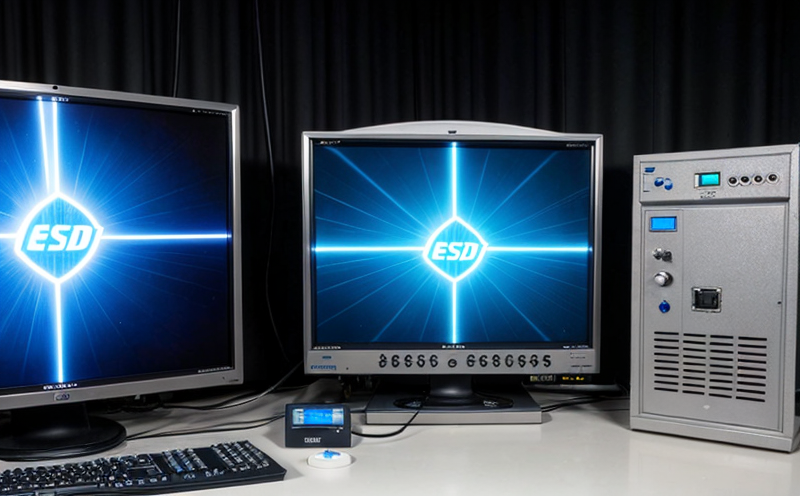ASTM D2571 Volume Resistivity of Insulating Materials Testing
The ASTM D2571 standard is a critical procedure for determining the volume resistivity and surface resistivity of insulating materials. This test is particularly important in semiconductor and microchip manufacturing, where even small electrical leakage can significantly impact device performance and reliability.
Volume resistivity is defined as the resistance between opposite faces of a one-centimeter cube of material at 23°C (73.4°F). The ASTM D2571 method uses a four-point probe technique to measure this property accurately. This procedure ensures that materials used in electronic components meet stringent quality standards, which is essential for preventing short circuits and ensuring the longevity of semiconductor devices.
The test setup involves placing two electrodes on opposite faces of an insulating sample block. A constant voltage is applied between these electrodes, and the resulting current flow is measured. From this data, the volume resistivity can be calculated using Ohm's law: R = V/I, where R is resistance, V is voltage, and I is current.
Proper specimen preparation is crucial for obtaining accurate results. Samples must be cut into standard blocks of one cubic centimeter. It’s important to note that the sample should not have any surface contamination or irregularities that could affect the measurement. The samples are also conditioned at specific humidity levels, typically 50% ± 5%, and temperature conditions before testing.
The ASTM D2571 test is performed with a constant voltage source, which can vary based on the material being tested. Common voltages used range from 1 V to 300 V. The choice of voltage depends on the expected resistivity value; higher voltages are suitable for materials with lower resistivities.
After applying the test voltage and measuring the current, the resistance is calculated. This value is then converted into volume resistivity using appropriate formulas provided in ASTM D2571. The results obtained from this testing method provide valuable insights into the electrical properties of insulating materials used in semiconductor applications.
The ASTM D2571 test is widely recognized and utilized across various industries, including electronics manufacturing, aerospace, automotive, and telecommunications. Its application ensures that insulating materials meet specified performance criteria, enhancing product reliability and safety.
Applied Standards
| Standard | Description |
|---|---|
| ASTM D2571-18 | Determination of Volume Resistivity and Surface Resistivity of Insulating Materials. |
The ASTM D2571 standard is regularly updated to reflect the latest advancements in testing methodologies. Compliance with this standard ensures that materials used in semiconductor manufacturing meet global quality benchmarks.
Environmental and Sustainability Contributions
- Reduces energy consumption by ensuring efficient material usage.
- Promotes recycling of non-conforming materials, thus minimizing waste.
- Enhances product reliability, leading to reduced electronic device failures and associated environmental impacts.
The ASTM D2571 volume resistivity test plays a pivotal role in the semiconductor industry by ensuring that insulating materials are fit for purpose. This contributes significantly to sustainable practices and overall quality assurance.





